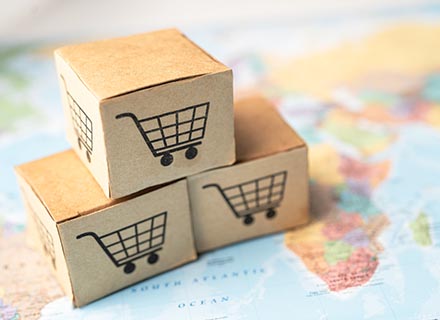Africa is trending in global trade. As per the “The Future of Trade: Africa” research by Standard Chartered, the continent’s exports will reach about USD 1 trillion by 2035.
Baker McKenzie Johannesburg Tax Practice Group partner and head of Tax Virusha Subban
Recently, the World Bank anticipated that the African Continental Free Trade Area (AfCFTA) would raise intra-African trade volumes by 81%, improving Africa’s income by USD 450 billion by 2035. Due to geopolitical issues, significant global actors are diversifying their supply networks, bolstering AfCFTA’s trade boost.
Recent advances in AfCFTA’s protocols, rules, and procedures on commerce, simplified customs procedures, and dispute resolution mechanisms aim to create a single legal framework for the continent, making cross-border trade and investment easier.
The ultimate goal is to eliminate intra-African trade tariffs, reduce unemployment, build infrastructure, and make cross-border trade more competitive and sustainable.
Trade Financing
Afreximbank and the AfDB continue to monitor market trends and offer sustainable solutions to increase intra-African trade. These institutions are supporting market participants in Africa’s trade finance gap by lending more and offering alternative products.
Recent announcements include Afreximbank increasing intra-African trade finance to USD 40 billion by 2026 from USD 20 billion in 2021. An AfCFTA Adjustment Fund will provide money, technical help, grants, and compensation to state parties and private firms to effectively participate in the AfCFTA.
The Transaction Guarantee Instrument, Pan African Payment and Settlement System, and Base Fund of the AfCFTA Adjustment Fund have also impacted intra-African commerce since AfCFTA’s creation.
Role Of The United States
The African Growth and Opportunity Act (AGOA), which gives qualifying sub-Saharan African countries duty-free access to the US market for over 1,800 products, is expected to change or be replaced.
This may change trade patterns, notably with Africa’s preferential treatment of small and medium firms and women- and youth-owned businesses. Smaller African countries that have not benefited from AGOA may soon be allowed to do so.
The US and Africa trade well. The US announced it would invest USD 55 billion in Africa over three years, with USD 15 billion going to “two-way trade and investment commitments, deals, and partnerships that advance key priorities, including sustainable energy, health systems, agribusiness, digital connectivity, infrastructure, and finance.”
The China Prospects
African commerce with China, its greatest trading partner, grows. Chinese customs authorities reported USD 282 billion in trade in 2022 due to rising commodity prices and China’s promotion of African imports.
The Economist Corporate Network, Baker McKenzie, and Silk Road Associates (BRI Beyond 2020) found that 97% of 33 Africa’s poorest governments’ exports to China were tariff- and duty-free.
The research also noted that China still imported most of Africa’s natural resources, but in recent years, China has imported more manufactured commodities from increasingly diverse African countries.
Crucial Minerals
The energy shift has increased the demand for vital minerals, making Africa a key actor due to its huge mineral base. South Africa, Namibia, Ghana, and Zimbabwe are considering ways to process important minerals locally sustainably to maximize benefits.
Africa’s mineral exports are primarily offtakes, limiting earnings. The European Union and United States have stressed the necessity of commodities supply chain risk mitigation and strategic partnerships with responsible essential mineral suppliers.
African commerce’s future is bright, but tackling infrastructure deficiencies, maintaining sustainability, and navigating changing trade ties will be crucial. Despite hurdles, Africa’s involvement in global trade seems likely.

